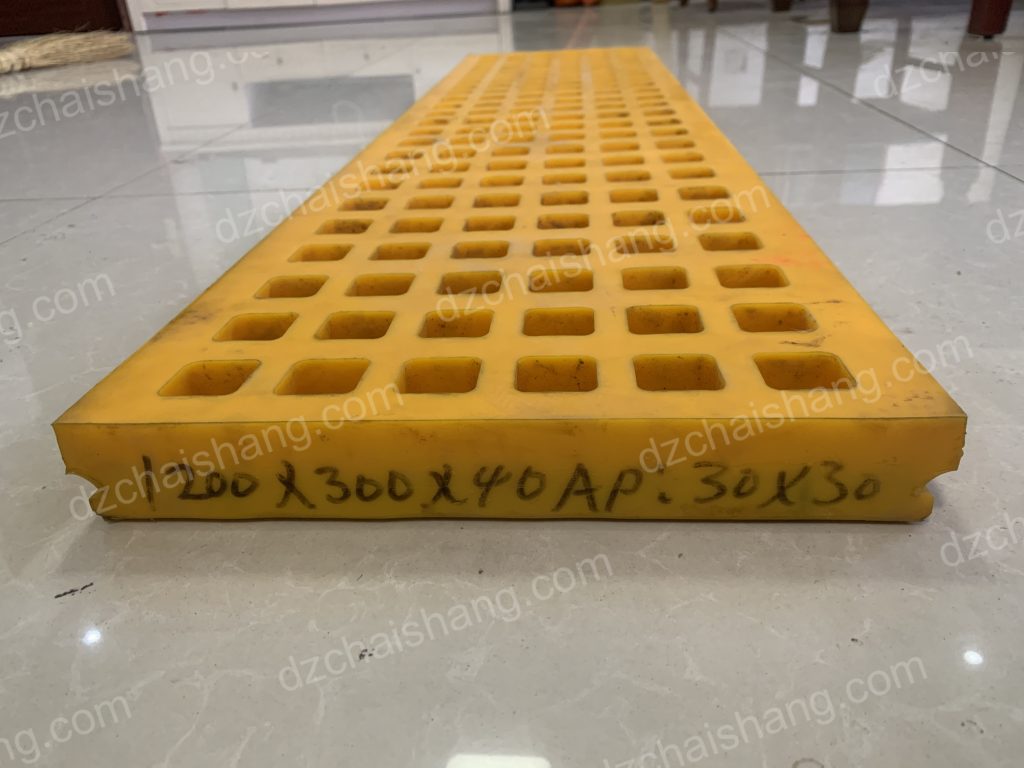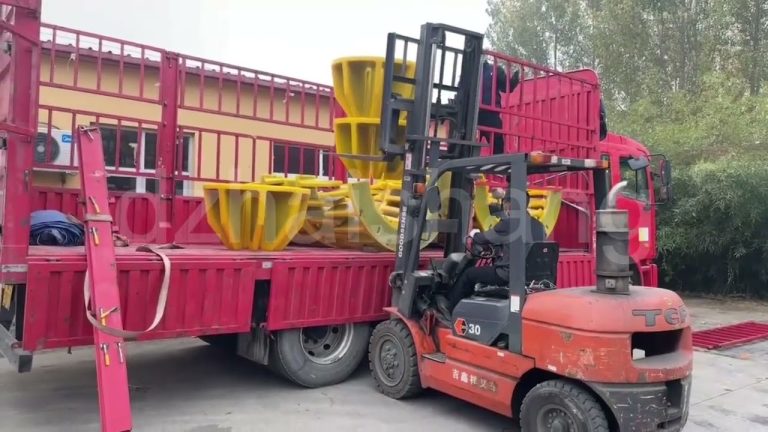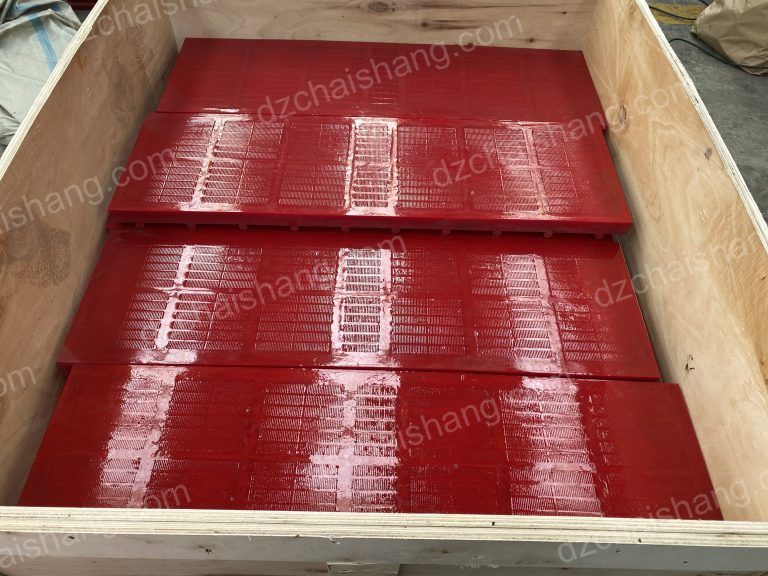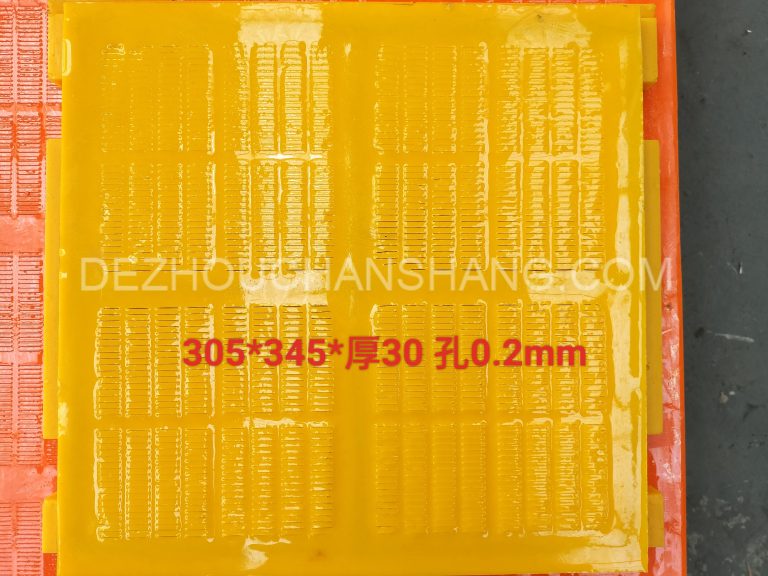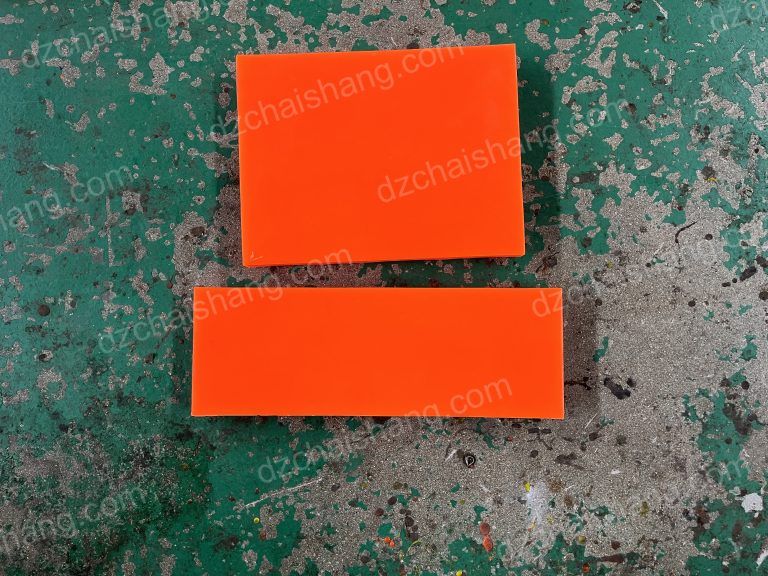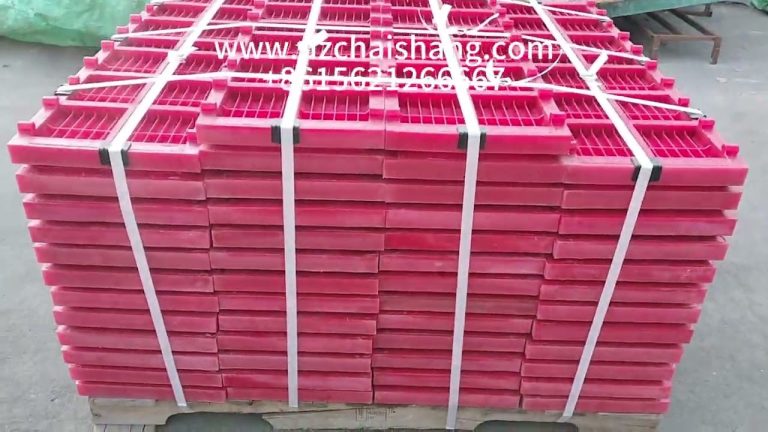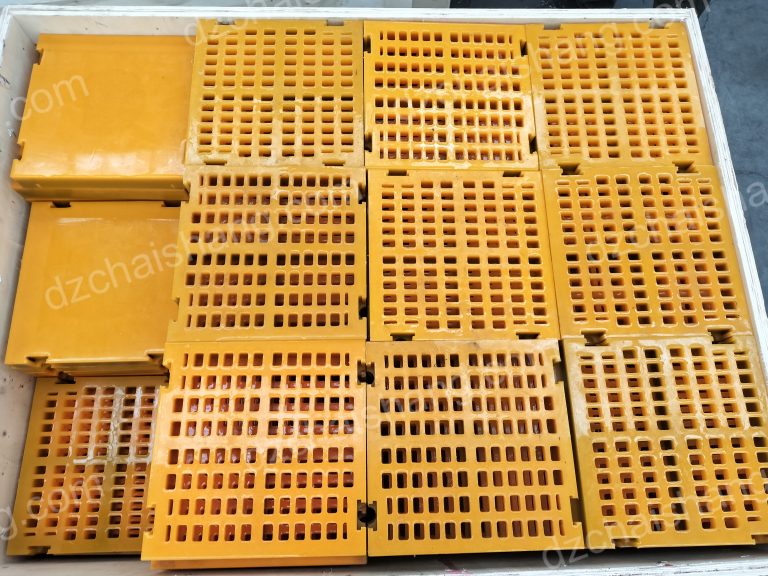shaker polyurethane wire panel Producer Dewatering
Benefits of Using Shaker polyurethane Wire Panels for Producer Dewatering
Shaker polyurethane wire panels have become a popular choice for producer dewatering in various industries due to their numerous benefits. These panels are designed to efficiently separate solids from liquids, making them an essential component in the dewatering process. In this article, we will explore the advantages of using shaker polyurethane wire panels for producer dewatering.
One of the key benefits of shaker polyurethane wire panels is their durability. These panels are made from high-quality polyurethane material that is resistant to wear and tear, making them ideal for heavy-duty dewatering applications. Unlike traditional wire mesh panels, shaker polyurethane wire panels are less prone to damage and can withstand the rigors of continuous use.
In addition to their durability, shaker polyurethane wire panels are also highly efficient in separating solids from liquids. The unique design of these panels allows for maximum drainage and dewatering, ensuring that the desired solids are effectively removed from the liquid stream. This results in a more efficient dewatering process and higher quality output.
Furthermore, shaker polyurethane wire panels are easy to install and maintain. These panels can be quickly and easily installed on existing dewatering equipment, minimizing downtime and increasing productivity. Additionally, the smooth surface of polyurethane wire panels makes them easy to clean and maintain, reducing the risk of clogging and prolonging the lifespan of the panels.
Another advantage of using shaker polyurethane wire panels for producer dewatering is their versatility. These panels can be customized to meet specific dewatering requirements, making them suitable for a wide range of applications. Whether dewatering sludge, wastewater, or industrial effluent, shaker polyurethane wire panels can be tailored to deliver optimal performance and efficiency.
Moreover, shaker polyurethane wire panels are environmentally friendly. The polyurethane material used in these panels is non-toxic and recyclable, making them a sustainable choice for dewatering operations. By using shaker polyurethane wire panels, companies can reduce their environmental impact and contribute to a more sustainable future.
In conclusion, shaker polyurethane wire panels offer numerous benefits for producer dewatering. From their durability and efficiency to their ease of installation and maintenance, these panels are a cost-effective and reliable solution for separating solids from liquids. With their versatility and environmental friendliness, shaker polyurethane wire panels are an excellent choice for dewatering applications across various industries. Whether dewatering municipal sludge, industrial wastewater, or mining tailings, shaker polyurethane wire panels can help companies achieve optimal results and improve their overall dewatering process.
How to Choose the Right Shaker Polyurethane Wire Panel for Your Dewatering Needs
When it comes to dewatering, choosing the right equipment is crucial to ensure efficient and effective water removal. One key component of dewatering equipment is the shaker polyurethane wire panel. These panels play a vital role in the dewatering process by helping to separate solids from liquids. However, with so many options available on the market, it can be challenging to determine which shaker polyurethane wire panel is best suited for your specific dewatering needs.
One important factor to consider when selecting a shaker polyurethane wire panel is the material it is made from. Polyurethane is a popular choice for wire panels due to its durability and resistance to abrasion. Polyurethane Panels are also known for their flexibility, which allows them to conform to the shape of the shaker deck and provide a tight seal. This helps to prevent leakage and ensure that the dewatering process is as efficient as possible.
Another important consideration when choosing a shaker polyurethane wire panel is the size of the openings in the panel. The size of the openings will determine the size of the solids that can pass through the panel and be separated from the liquid. It is important to select a panel with openings that are appropriate for the size of the solids you are trying to remove. If the openings are too small, the dewatering process may be slowed down, while if they are too large, smaller solids may not be effectively separated.
In addition to the material and size of the openings, it is also important to consider the design of the shaker polyurethane wire panel. Some panels are designed with a flat surface, while others have a corrugated or dimpled surface. The design of the panel can impact its ability to effectively separate solids from liquids. Panels with a corrugated or dimpled surface are often more effective at agitating the solids and promoting drainage, which can help to improve the efficiency of the dewatering process.
When selecting a shaker polyurethane wire panel, it is also important to consider the overall quality of the panel. Look for panels that are made from high-quality materials and are manufactured to strict quality standards. A well-made panel will be more durable and long-lasting, reducing the need for frequent replacements and maintenance. Additionally, a high-quality panel will provide more consistent performance, ensuring that your dewatering process runs smoothly and efficiently.
Finally, it is important to consider the cost of the shaker polyurethane wire panel. While it may be tempting to opt for a cheaper panel to save money, it is important to remember that quality should not be sacrificed for cost. Investing in a high-quality panel may cost more upfront, but it can save you money in the long run by reducing the need for frequent replacements and maintenance.
In conclusion, choosing the right shaker polyurethane wire panel is essential for ensuring efficient and effective dewatering. Consider factors such as the material, size of the openings, design, quality, and cost when selecting a panel for your dewatering needs. By taking the time to carefully evaluate your options and choose a panel that meets your specific requirements, you can ensure that your dewatering process runs smoothly and effectively.
